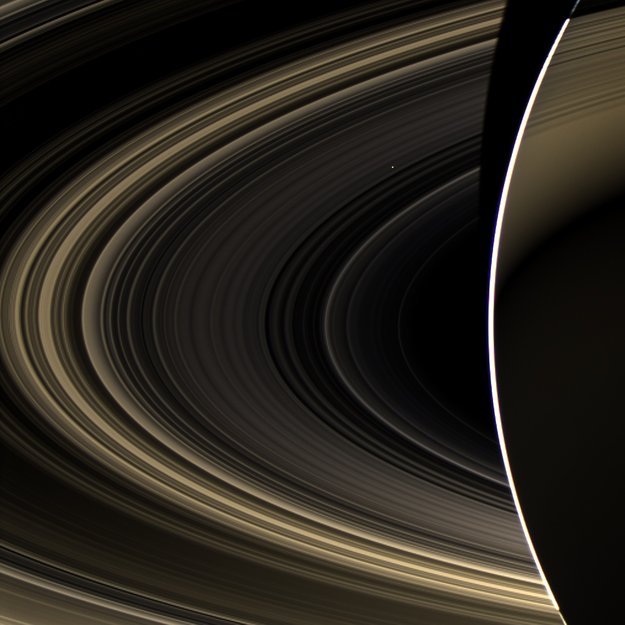.

A distant world gleaming in sunlight, Venus shines like a bright beacon through Saturn’s rings in this image taken by the international Cassini spacecraft.
The image was taken last November when Cassini was placed in the shadow of Saturn. This allowed Cassini to look in the direction of the Sun and take a backlit image of the planet and its rings.
Peeking through the rings in this image is Earth’s ‘twin’ planet, Venus, just to the right of centre in the upper part of the image.
The view looks toward the unlit side of the rings from about 17º below the ring plane. The bright arc at the right of the image is the limb of Saturn. A portion of the rings is silhouetted against the face of Saturn, which itself is faintly illuminated by sunlight scattered off the rings.
Venus is, along with Mercury, Earth and Mars, one of the rocky terrestrial planets of the inner Solar System. Although it has a similar size, mass and rocky composition to Earth, Venus is far from a true twin.
Under a thick, choking atmosphere of carbon dioxide and sulphuric dioxide clouds the surface pressure is nearly 100 times greater than on Earth, not to mention the scorching 500ºC surface temperature – the hottest planetary surface in the Solar System.
But it is Venus’ permanent sulphur clouds that reflect plentiful sunlight, making it shine brightly in the night sky, even from a distant viewpoint in the outer Solar System.
The Cassini–Huygens mission is a cooperative project of NASA, ESA and ASI, the Italian space agency. NASA’s Jet Propulsion Laboratory, a division of the California Institute of Technology in Pasadena, manages the mission for NASA’s Science Mission Directorate, Washington.
Quelle: NASA
5708 Views
